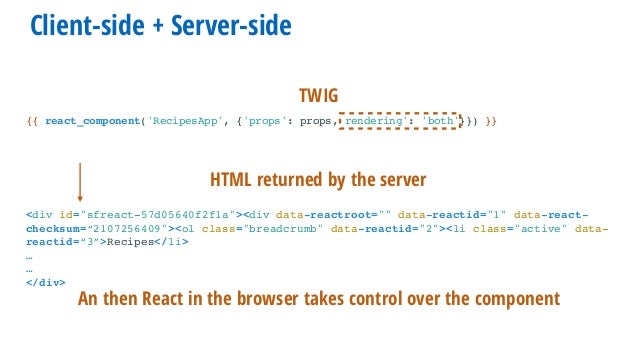Node Js Php Serialize Unserialize
Data serialized by PHP should be deserialized by PHP, since it is a format proper to that environment. It would be unwise to use a JavaScript deserialize function when you have the possibility to do that in PHP itself. Grid Keygen Mac Download here.

So do this in PHP: // Deserialize your data $data11 = unserialize($row['data']); // JSON encode it, and output that echo json_encode($data11); Then in JavaScript, assuming you get the PHP data in a variable response (via an Ajax request): var data = JSON.parse(response); I suppose you already have the code to perform the Ajax request. If not, look at the many Q&A on that subject, for example. Top Spin 4 Pc Download Emulators.
Warning Do not pass untrusted user input to unserialize() regardless of the options value of allowed_classes. Unserialization can result in code being loaded and executed due to object instantiation and autoloading, and a malicious user may be able to exploit this.
Js-php-serialize - NodeJS Module for working with PHP serialized data.
Use a safe, standard data interchange format such as JSON (via and ) if you need to pass serialized data to the user. If you need to unserialize externally-stored serialized data, consider using for data validation. Make sure data is not modified by anyone but you. Parameters str The serialized string.

If the variable being unserialized is an object, after successfully reconstructing the object PHP will automatically attempt to call the member function (if it exists). Note: unserialize_callback_func directive It's possible to set a callback-function which will be called, if an undefined class should be instantiated during unserializing. (to prevent getting an incomplete '__PHP_Incomplete_Class'.) Use your php.ini, or.htaccess to define ' unserialize_callback_func'. Everytime an undefined class should be instantiated, it'll be called. To disable this feature just empty this setting. Options Any options to be provided to unserialize(), as an associative array.
Valid options Name Type Description allowed_classes Either an of class names which should be accepted, FALSE to accept no classes, or TRUE to accept all classes. If this option is defined and unserialize() encounters an object of a class that isn't to be accepted, then the object will be instantiated as __PHP_Incomplete_Class instead. Omitting this option is the same as defining it as TRUE: PHP will attempt to instantiate objects of any class.
In reply to the earlier post about having to include object definitions *before* using unserialize. There is a workaround for this. When an object is serialized, the first bit of the string is actually the name of the class.
When an unknown object is unserialized, this is maintained as a property. So if you serialize it again, you get back the exact same string as if you'd serialized the original object.
Basically, to cut to the point. If you use $_SESSION['my_object'] = unserialize(serialize($_SESSION['my_object'])) then you get back an object of the correct type, even if the session had originally loaded it as an object of type stdClass.